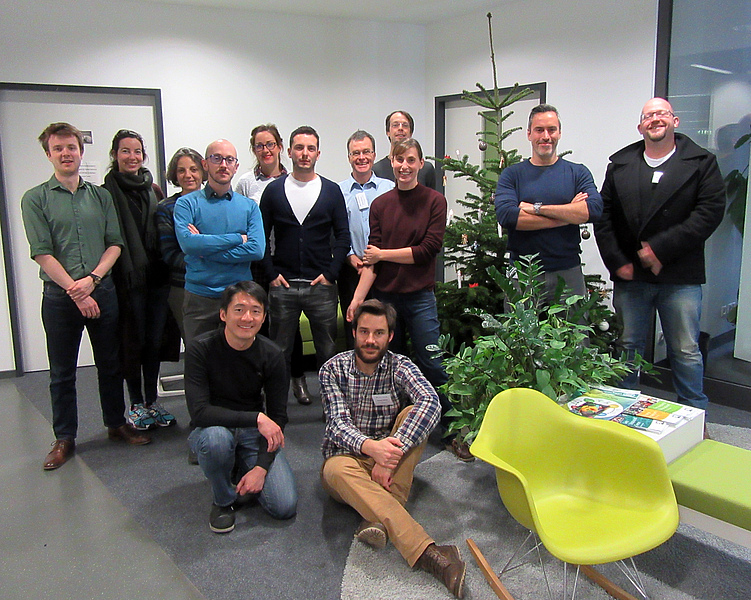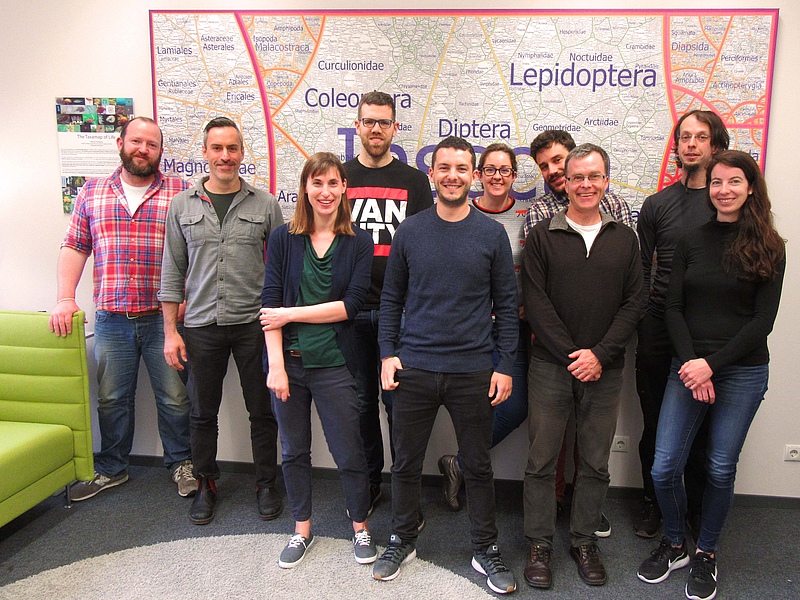sCAP – Testing the conservation value of phylogenetic diversity
First meeting: 05.-08.12.2016
PIs:
Arne Mooers
Caroline M. Tucker
iDiv member:
Alexandra Mueller-Riehl
Project summary:
The academic interest in using phylogenetic diversity (PD) as a metric of conservation prioritization has been increasing exponentially since its inception, and has been the focus of recent high impact papers (e.g. in 2014 alone in Science and in Current Biology). However, adoption by practitioners has been slow, likely due to the lack of strong conceptual and empirical links between phylogenetic diversity and more traditional aspects of biodiversity humanity considers valuable. One verbal argument for the conservation value of PD is based on the assumption that higher PD (as measured on a phylogeny) leads to higher total trait diversity. This greater trait diversity then supposedly produces increased biological goods and ecosystem services for direct use, increased option value (i.e. biological goods useful in the future), or the raw material for future biodiversity production via evolution. These arguments have either failed limited tests or, in the case of evolutionary potential, have never been tested at all. The second-order connection between ecosystem function and PD has been demonstrated only a few times and at local scales. We propose to rigorously test these arguments for conserving PD, using simulated and empirical phylogenetic and trait data at large temporal and spatial scales.
The sCap project is co supported by the CIEE / ICEE – Canadian Institute of Ecology and Evolution / Institut canadien d’écologie et d’évolution
Participants:
Arne Mooers (Simon Fraser University); Caroline Tucker (University of Colorado); Tracy Aze (University of Leeds) Juan Lopez Cantalapiedra (Museum für Naturkunde); Marc Cadotte (University of Toronto); Chelsea Chisholm (University of Copenhagen); Sandra Diaz (Universidad Nacional de Córdoba); Rich Grenyer (Oxford University); Danwei Huang (National University of Singapore); Florent Mazel (Alpine Ecology Lab); Will Pearse (Utah State University); Giulio Valentino Dalla Riva (University of British Columbia); Marten Winter (iDiv)




Participants:
Arne Mooers (Simon Fraser University); Caroline Tucker (University of Colorado); Tracy Aze (University of Leeds) Juan Lopez Cantalapiedra (Museum für Naturkunde); Marc Cadotte (University of Toronto); Chelsea Chisholm (University of Copenhagen); Rich Grenyer (Oxford University); Florent Mazel (Alpine Ecology Lab); Matt Pennel (University of British Columbia); Marten Winter (iDiv)
Publications:
Mazel, F. et al. (2017) Conserving phylogenetic diversity can be a poor strategy for conserving functional diversity. Systematic Biology 66: 1019-1027. See here
Tucker, C.M. et al. (2018) On the relationship between phylogenetic diversity and trait diversity. Ecology 99: 1473-1479. See here
Mazel F., Pennell M. W. et al. (2018) Prioritizing phylogenetic diversity captures functional diversity unreliably. Nature Communications 9, Article number: 2888. See here
Mazel, F. et al. (2019) Reply to: Global conservation of phylogenetic diversity captures more than just functional diversity. Nature Communications 10:858. See here
Cantalapiedra J. L. et al. (2019) Conserving evolutionary history does not result in greater diversity over geological time scales. Proceedings of the Royal Society B, Vol. 286. See here
Tucker, C.M. (2019) Assessing the utility of conserving evolutionary history. Biological Reviews. Early View, Open Access. See here
Weedop, K.B. et al. (2019) The effect of phylogenetic uncertainty and imputation on EDGE Scores. Animal Conservation, 22: 527-536. See here
Chaudhary, A, Pourfaraj, V, Mooers, AO. (2018) Projecting global land use-driven evolutionary history loss. Divers Distrib. 24: 158– 167. See here
Ng, L. W. K. et al. (2022). Prioritizing phylogenetic diversity to protect functional diversity of reef corals. Diversity and Distributions, 00, 1– 14. See here